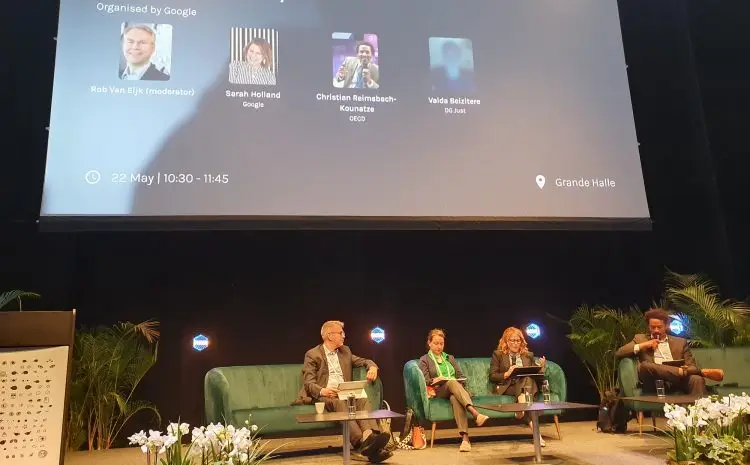Can governments lead the charge on Privacy Enhancing Technologies?

Industry, government, and civil society all have a critical role to play in harnessing the power of Privacy Enhancing Technologies (PETs), experts agreed at the CPDP panel, “Bridging the Gap with PETs: Governments’ Opportunity to Lead on Innovation and Privacy.”
Although PETs have been around for years, their adoption has been patchy – particularly outside the tech sector. But that may be about to change. As governments scramble to harness the promise of Generative AI (GAI), PETs could prove to be an essential part of the toolkit.
Sarah Holland, Public Policy Manager at Google, described PETs as a “broad suite of technologies” that enable the “responsible use of data to power insights” – a capability that becomes ever more vital in the age of AI. “PETs are an AI opportunity for people, businesses and governments.”
“PETs are great for baseline protections for people,” she added. They also present a powerful value proposition for business, helping companies “grow new lines of revenue and grow trust in digital services.” And for governments, they offer a strategic edge: “with investments in AI, they are gaining a competitive advantage.”
But, Holland cautioned, “PETs are not a magic solution, a blank cheque. You need to know how to use them correctly.”
One challenge is awareness. “People don’t understand what PETs are,” said Christian Reimsbach-Kounatze, internet economist and policy analyst at the OECD. “A lot of vendors are spending time educating. We as society and government also have opportunities to raise awareness about the benefits.”
The OECD is actively working on this front. “We are creating a repository of PET use cases that are adding value to business and governments,” he said. “And as governments invest in AI, PETs can provide a competitive advantage. Privacy is a competitive feature.”
He emphasized that the impact of PETs goes far beyond regulatory compliance – they can unlock valuable opportunities for secure data sharing.
That potential, however, hinges on ongoing investment. “If there is support to fund R&D, that helps,” he said.
Google is one of the major players backing this effort, funding research, supporting open-source systems, and contributing protected datasets. “This is something Google takes very seriously and makes major investments,” Holland said. “It’s not just putting the research and the code out there; it’s helping people to use it.”
And she reminded the audience where it all began: “We stand on the shoulders of government research. We all do; the internet itself was a product of government research.”
Trust is another non-negotiable. “We have to make sure that PETs don’t have backdoors implemented in them,” said Reimsbach-Kounatze.
He also urged a rethink of the data economy. “We need to rethink business models. The business model has been on maximising data; PETs offer a chance to rethink that.”
PETs are already being woven into legal frameworks. “The GDPR has embedded PETs in Article 25,” said Valda Beiziteire of DG Just, European Commission. “The more scalable PETs become, the easier it is for the market.”
Holland pointed to the role of international collaboration in pushing the field forward, citing “fantastic organisations” such as CIPL, the G7 DPA summit, and the DPA PETs network, where joint projects like cross-border regulatory sandboxes are taking shape.
“The most important thing is solving regulatory uncertainty,” she said. “We also need to ensure we’re guarding against privacy-washing.”
For further information, read Google’s working paper Responsible Development and Use of Privacy Enhancing Technologies: How Governments Can Help.
More from CPDP2025:




